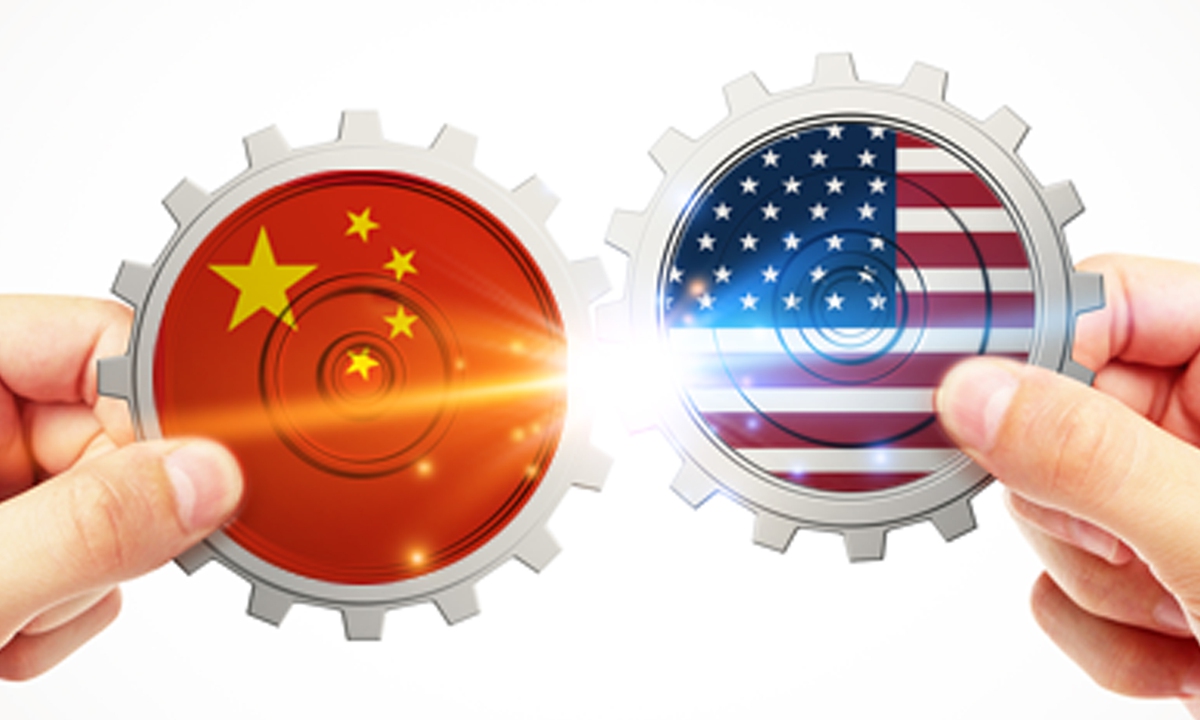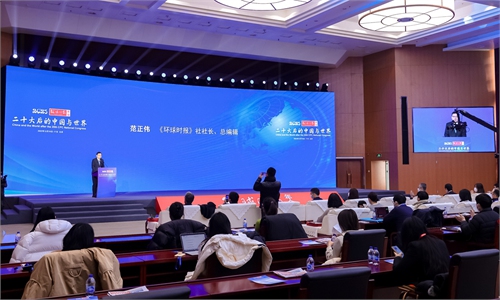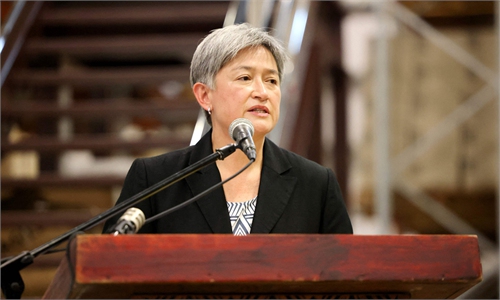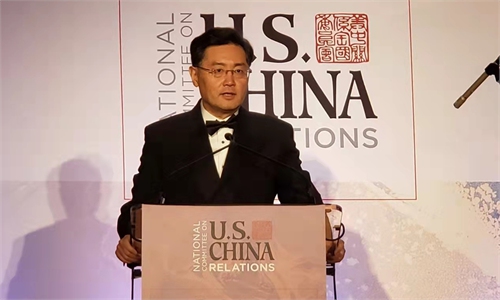US should also provide stable expectation for China-US ties in 2023: Global Times editorial

China-US Photo: GT
With the advent of 2023, whether China-US relations, one of the most important bilateral ties in the world today, can stabilize after the ups and downs in the past year has drawn worldwide attention. At the beginning of the New Year, Chinese Foreign Minister Ambassador Qin Gang held a phone conversation with US Secretary of State Antony Blinken in the US, expressing his hope to continue close working relations with Blinken for a better China-US relationship. Since the meeting between the two heads of state in Bali last November, dialogues and engagements between the two sides have ramped up in various fields and at multiple levels, which led many observers to express cautious optimism about the China-US ties getting warmer in 2023.In the past year, China-US relations reached the brink of danger. On the Taiwan question, Washington's insane "extreme testing" of China's bottom line, in particular the then House Speaker Nancy Pelosi's provocative visit to the island, has severely hit the political foundation of China-US relations and worsened the already fragile mutual trust between the two countries. In addition, Washington regards China as the "top strategic competitor," constantly stepping up sanctions against China in the economic and trade field, and implementing a "decoupling" policy in the high-tech industrial chain. These practices have not only impacted China-US bilateral ties, but also endangered world peace and stability.
In 2023, will there be a certain degree of rebound in China-US relations, or will the relations inevitably deteriorate or even collide? It is not difficult to find that recently there have been increasing discussions about the "time window" to stabilize China-US relationship, and there is also a view that there may be a "spring" to come in China-US relations this year. These claims themselves reflect certain expectations from the outside world. The communication mechanisms between China and the US are recovering. It has become the consensus that the bilateral relationship must not derail to get out of control. Both sides are facing the challenges of post-pandemic economic recovery, and the US will enter the election year in 2024. There have indeed been signs that 2023 may be the most likely year to ease China-US relations and that now is the best time for cooperation.
However, such a "window of opportunity," even if in existence, is still very fragile, and this requires Washington to reflect. The political polarization and division in the US have formed huge challenges to China-US relations. Even if the Biden administration intends to step on the brake, but in the Capitol Hill where the more anti-China one is, the more attention one gets, a political mine could be detonated all of a sudden. In other words, despite signs of China-US relations getting warmer, however, issues such as Taiwan question and industrial chain have not been solved, and could suddenly deteriorate at any time because of US internal factors.
Now more and more reflections have emerged in the US. For example, an oped published in the Wall Street Journal previously pointed out that " "As for the US, domestic political priorities have pushed policy makers to overreact to the China threats…The bipartisan consensus on the China threat left little space for sensible thinking about the trade-offs between the costs and benefits of specific policies toward China." Besides, some American experts have advised Washington to show some restraints in action, for example, cutting the frequency of US warships sailing through the Taiwan Straits by half. Washington policy elites should take these rational voices seriously.
Of course, China-US relations are facing many uncertainties, but one thing is certain, that is, China's stability will positively shape China-US relations. This kind of stability not only includes our attitude as a responsible major country, the certainty of our diplomatic principles and policies toward the US, but also includes China's insistence on "doing its own things well," realizing the development of comprehensive strength step by step, and allowing its own development closely intertwined with the tide of the times. We certainly hope that China-US relations will achieve positive progress in 2023, but even if there are "high winds, choppy waters, and even dangerous storms," we will not be afraid.
In the face of many challenges, for the world to become better, major countries must set an example. Over the past year, we have unremittingly explored the correct way for the two major countries, China and the US, to get along with each other and shown our utmost restraint and goodwill. In the new year, it is obvious that Washington needs to do more regarding how the two countries should correctly view each other's domestic and foreign policies as well as strategic intentions, establish the exchange tone of dialogues rather than confrontation and win-win rather than zero-sum mentality.



